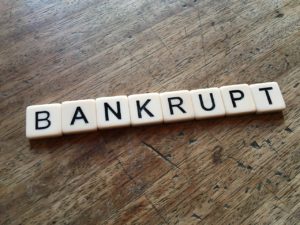As I write this article I’m attending a workshop for members of the National Association of Consumer Bankruptcy Attorneys (NACBA). It’s the first time we’ve met for a long time (we’re all vaccinated against COVID and wearing masks now). But being around other consumer bankruptcy attorneys reminds me why I love helping people file bankruptcy. We’re all committed to helping clients move beyond the burdens that debt places on people.
When potential clients contact me they often ask whether filing bankruptcy is the right choice in their situation. I always say there are no “rules” for when bankruptcy makes sense. Every situation is different and every person has different goals. But I almost always give potential clients my unofficial personal standard for when bankruptcy should be filed. In general, I think if you can pay all unsecured debt (excluding student loans) within 3-4 years without doing anything “extra” like taking money from retirement funds or using up equity in your home or using a debt consolidation program you saw on late-night television http://thompsonlawoffice.net/784/avoiding-debt-relief-scams/ then you should do that. In other words, if the debt is small enough or your income is high enough to completely pay off that debt in 3-4 years without filing bankruptcy then that’s a good thing.
But if paying all unsecured debt can’t be done within that short amount of time then bankruptcy is probably the right choice. Why spend more than 4 years burdened by debt? Even filing Chapter 13 bankruptcy means you’re out of debt in five years so there’s no reason to avoid bankruptcy by taking more years than that to pay it off. I think life is too short to suffer the burdens of debt. We all have (or should have) retirement funds to contribute to. Many of us have or need college accounts for our kids. I’ve seen too many people suffer mentally and emotionally and physically from the heavy weight of debt. I love that I’ve spent nearly forty years helping people get a fresh start through filing bankruptcy.
Beyond eliminating unsecured debt there may be other advantages of filing bankruptcy like saving homes, discharging old income taxes or paying new taxes or getting better terms on secured debt like car loans. As I said, everyone’s situation is different. But bankruptcy should often be the first choice of many people faced with debt problems. Contact me at [email protected] to review your bankruptcy options.



